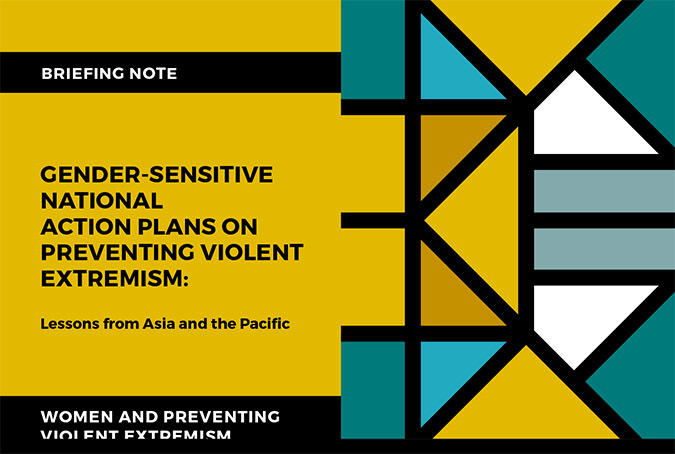
GENDER-SENSITIVE NATIONAL ACTION PLANS ON PREVENTING VIOLENT EXTREMISM

Lessons from Asia and the Pacific
Terrorism and violent extremism impact women and girls in specific ways. Many terrorist and violent extremist groups are placing control over women and girls at the heart of their agendas, using gender stereotypes to radicalize and recruit. Limitations on women’s rights, including restrictions on their freedom of movement and freedom of expression can signal early warning signs of rising extremism. Increasingly, women and girls are themselves being recruited forcibly or willingly to these groups.
However, to date women’s participation in national, regional and global processes to tackle violent extremism, and their roles and priorities within prevention and response frameworks, have been underrepresented and undervalued.
This guidance note was produced by UN Women Regional Office for Asia and the Pacific and is informed by discussions at the Expert Group Meeting, National Action Plans on Preventing Violent Extremism, in New York on 11 July 2017 supported by UN Women as well as the discussion at the Gender Session of the Regional Workshop on the Prevention of Violent Extremism: Innovative Approaches for National Strategies on November 27-29, 2017 in Bangkok, supported by UN Women, United Nations Development Programme (UNDP), the United Nations Office on Drugs and Crime (UNODC), United Nations Volunteers and the United Nations Office of Counter-Terrorism (UNOCT).